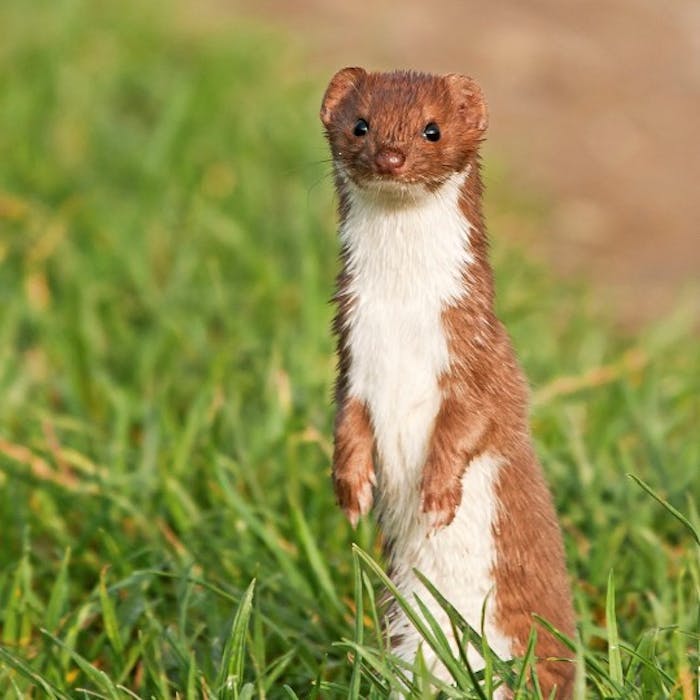
The Weasel - Britain's smallest carnivore
Weasels are the UK’s smallest carnivores. Around 7 inches high, with red or brown upper coats and white bellies, they belong to a group of animals known as mustelids - meaning they have a long body and short legs, and are related to otters and stoats (with which they are sometimes confused).
They are happy in many different habitats including woodland, grassland, and moorland.
Weasels are widespread in England, Wales and Scotland, with a population of around 450,000. Voracious predators, weasels specialise in hunting small rodents. Their long, slender bodies enable them to follow their prey into burrows, hunting at any time of day or night. They do not hibernate and can hunt even under deep snow. Additional prey such as birds, eggs and young rabbits may be taken, particularly if rodents are scarce.
Their young are called kits, and they can have up to two litters a year with three to six kits per litter. Kits are weaned at 3-4 weeks, and can kill efficiently at 8 weeks; in a good year for food, young females can breed at 2-3 months old. Family groups split up at 9-12 weeks.
A weasel’s home range usually contains several dens and resting places that are visited at different times. Their homes are usually nests of former prey. Male and females live in separate territories. In spring males extend their range to seek mates.
Traditionally weasels have been considered enemies of gamebirds, and gamekeepers have exercised intensive predator control, trapping and killing them. Weasels have no legal protection in Britain.
In 17th-century England, weasels were considered to be associated with witches. It is perhaps for this reason that 'weasel' can be an insult, noun or verb, for someone regarded as sneaky, conniving or untrustworthy. Similarly, 'weasel words' is a critical term for words or phrases that are vague, misleading or equivocal.
Further reading
Links to external websites are not maintained by Bite Sized Britain. They are provided to give users access to additional information. Bite Sized Britain is not responsible for the content of these external websites.
